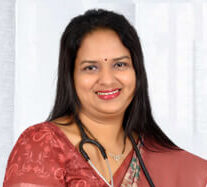In this article we are answering 5 Frequently Asked Question To Gynecologists By Women Above 40 Years
Are you a female over 40 doing everything in your power to maintain your health
vitality?
Forty is a magical number for Women’s Health. Your career, friendships ,
relationships, family may be flourishing. Yet turning 40 also means your chance of
developing illness like thyroid, osteoporosis, heart disease, menstrual irregularities
are increased significantly.
Many diseases simply become more common as we get older, and certain lifestyle
habits such as excessive alcohol consumption, smoking , poor eating habits begin to
take a toll by the age of 40.
Every time I cough/ sneeze / laugh or do jumping jacks I pee (Pass Urine) . Is
there anything I can do about that.
Oh! Incontinence . The gift of motherhood you would rather turn down
unfortunately its super common. Nearly 5 to 35% of women experience moderate to
severe incontinence but when I asked women above 50 who came to my clinic , I’d
put the number close to 60%
Being pregnant , giving birth and simply aging (decreased estrogen) can make pelvic
floor muscles weak, which can lead to inability to hold urine especially when you do
anything that increases extra pressure (laughing, jumping , coughing)
Also Read – Facts about pregnancy
TREATMENT
Kegel’s exercise, is an exercise to tighten your pelvic floor muscles. You perform
Kegels by contracting (squeezing) and relaxing the pelvic floor muscle many times
each day.
Hold tight your pelvic muscles for 3 to 5 sec, then relax 3 to 5 sec. Repeat 10 times 3
times a day. If its severe your doctor will prescribe medications or may recommend
surgery.
What supplements should I take after 40?
Women over 40 need to increase their supplement intake to make up for common
deficit such a low Vit – D. The body needs Vit D to absorb Calcium and protect
against bone loss associated with osteoporosis.
- To get sufficient Vit-D your need to stand under sun 15-20 mts daily
- Women should do weight training exercise , refrain from smoking and
supplements (as per your doctors advise)
- Best way to supplement calcium is through food like spinach , soybeans, white
beans fish, milk and milk products.
Also Read – Know more about Menstrual Cycle
My periods are not regular or I have heavy flow.
Irregular periods are a hallmark of perimenopause. Perimenopause is a transition
phase to menopause. Most of the time its normal and nothing to be worried
about Symptoms of perimenopause.
- Irregular periods or skipping periods.
- Periods that are heavy or lighter than usual
- Hot flashes ( sunder feeling of warmth that spreads on your body)
- Vaginal dryness and discomfort during sex.
But if your bleeding is heavy and you change pads frequently , do consult your
Gynecologists for further evaluation (Fibroids , polyps, cancer)
Do I still need birth control?
A study has shown that women over 40 are likely to have unplanned pregnancies as a
16 year old.
Unless you have officially entered menopause your need to follow contraception.
You can discuss this with your doctor what’s best contraception you can follow.
How frequently should I visit Gynecologists and what tests should I do?
An yearly Gynaec examination is advised to all women above 40 years.
- Pap Smear or HPV Testing
This is a screening test for cervical cancer. It is done every 3 years if your previous
tests were negative. Up to 65 years of aged or HPV testing every 5 years. - Mammography (X-ray of Breast) is done at the age of 40 to establish a
baseline. Women 45-54 should get mammogram done every year, above 55
years can do it once in 2 years or yearly.
If you have a family history of breast, Ovarian , colan cancer speak to your
doctor and the tests done accordingly.
Also Read – Why do women have period? – Dr Sharon Rasquinha




